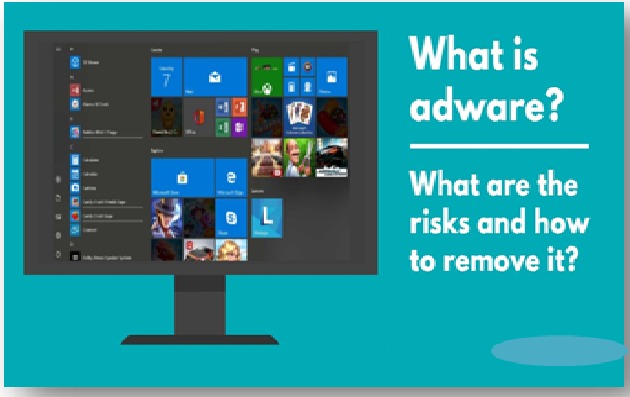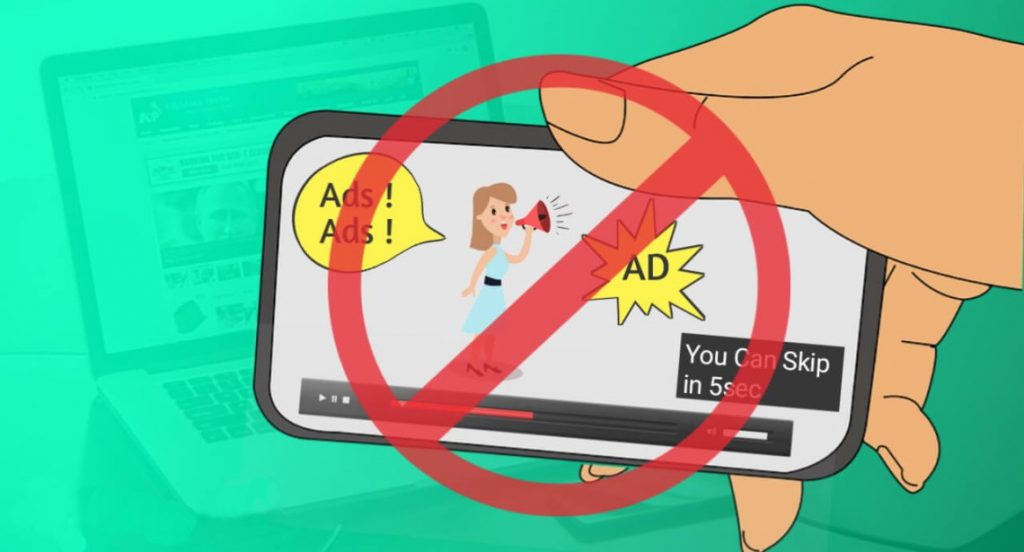Emerging Technology Threats – Adware


What do you understand by the word Adware – Adware, or advertising-supported software, is malicious software that displays unwanted advertisements on your computer. Adware programs will tend to serve you pop-up ads, can change your browser’s homepage, add spyware and just bombard your device with advertisements. Adware is a more succinct name for potentially unwanted programs. It’s not quite a virus and it may not be as malicious as a lot of other problematic code floating around on the Internet. Make no mistake about it, though, that adware needs to come off of whatever machine it’s on. Not only can adware be bothersome every time you use your machine, but it could also cause long-term issues for your device.
Adware uses the browser to collect your web browsing history to ‘target’ advertisements that seem tailored to your interests. At their most innocuous, adware infections are just annoying. For example, adware barrages you with pop-up ads that can make your Internet experience markedly slower and more labor-intensive.
The most common reason for adware is to collect information about you to make advertising dollars. It’s called adware when it’s on a computer, and malware when it’s on a mobile device, such as your smartphone or tablet. No matter what the adware or malware is, it’s likely going to slow down your machine and or even make it more prone to crashing.
Mobile Advertisement Malicious Software – Adware


There are two ways a digital phone or other connected devices can become infected with adware: either through a browser vulnerability or through bad apps. Bad apps are malicious apps that can install malware on your device.
- When a bad app is infected with adware, you can be bombarded by persistent ads.
- Similar to a computer, you can get adware through a browser vulnerability that can allow pop-ups ads.
How can your Electronic Devices get Adware?
There are two major main ways by which you can contract adware on your system or device.
- In one case, you can download a program that contains the adware—usually freeware or shareware—and it quietly installs without your knowledge.
- The second method is via what is called a bad website. These websites can be infected with adware, which takes advantage of a vulnerability in your web browser to deliver a drive-by download.
HOW TO TELL IF YOU HAVE AN ADWARE INFECTION


It’s Causes Constant Crashing
Are your programs randomly crashing? Is your entire device freezing up? These symptoms are a red flag for adware.
It’s Slowdown the Performance of Your Electronic Devices


If you notice that it’s taking longer than usual to launch programs and run them, or to load documents, images, or anything else on your computer, then you may have an infection. Adware can slow down your device’s processor and take up lots of memory space, therefore causing a decrease in your computer’s overall performance.
Bombarded with Ads


It’s normal to get a few pop-up advertisements while surfing the web. It’s even normal to see ads similar to something you may have searched for previously. However, if you are bombarded with pop-ups, get ads that seem difficult to close, or are redirected to full-page ads, then your device may be infected with adware.
Its Causes Slow Internet Speed Connection


Adware can slow down your internet connection because it is downloading massive amounts of ads from the internet.
It’s Constantly Changes the Browser Homepage


Adware is also known for making changes to your browser’s home page. It may redirect you to a new page that might then install more adware and possibly other forms of malware on your computer.
If you’re experiencing any of these symptoms, you may want to look into an adware removal (anti-Adware) tool such as Norton Power Eraser, 360Security, Proton anti-aware, which will help eliminate any adware and other malware your device may have.
How To Protect/Prevent Your Devices Against Adware


Preventing adware is the best way to avoid having to deal with these issues in the first place.
A smart strategy for protecting your computers and mobile devices is to install an internet security suite and keep it up to date on each of your devices (tablet, laptop, mobile, desktop) and their operating systems. Be proactive in terms of wisely choosing the websites that you visit. If something seems slow, spammy or to lag, or to behave like it’s installing a program, leave the website immediately.
Practicing healthy upkeep of your electronic devices and behaving safely is good for your security as a whole. In general, you’ll be more protected against all cyber threats if you:
- Keep All Software Updated. The most recent updates for your apps, system drivers, operating system (OS), and other software have security fixes in them. Developers constantly discover vulnerabilities and patch your software to protect you from threats.
- Watch for the Fine Details. Whether it’s a legitimate program installation or a link in an email, always pay attention to what you’re opening or accepting. Criminals try to mimic trusted URLs, email addresses, and social media profiles to catch you off guard. If you take a moment to examine these, you’ll find odd details that are red flags for scams.
- Keep your Activities Legal. Aside from the obvious risks, pirating media and software puts you closer to seedy criminals that take advantage of your desire for “free stuff.” These services might encourage adware installs or are carrying infected downloads — whether they know it or not.
- Be Cautious, Not Curious. In the digital world, treat anything unknown or unusual as a potential risk. Hackers take advantage of everything from USB charging stations to impersonating your friends on social media to infect you with adware and malware. Always ask yourself, “what’s the worst that can happen if this is bad,” and take caution.
When you’re downloading free computer software, mobile apps, or browsing the web:
- Only download programs from trusted, reputable sources.
- Always read all terms and checkbox agreements before clicking “next” during software installation.
- Look before you click (or tap).
- Read reviews. Everything from browser extensions to computer programs should have reviews somewhere online.
Sure, there are dangers out there in the digital landscape. However, protecting your devices may not be as difficult as you think. Between installing and running an internet security suite and taking some common-sense precautions, you can help protect your devices against many types of malicious software.
#BeSafe
#BeDigitallySecure
#PalmacedarLimitedCares
#KunleCares
Kunle.oyesanmi@palmacedar.com


